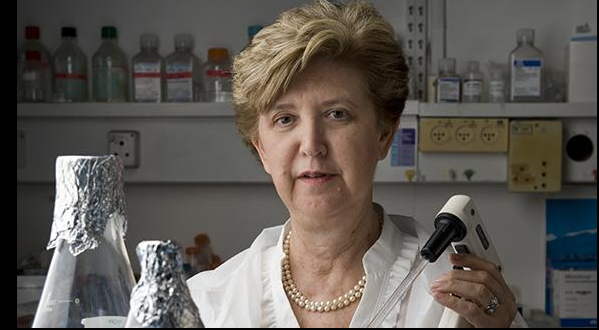A team of researchers at Tel Aviv University, Israel, has discovered a mechanism shared by mutations in two genes which cause autism, schizophrenia, and other conditions.
The paper was recently published in the scientific journal Molecular Psychiatry. Illana Gozes, the lead researcher and a Professor in clinical biochemistry, explained to The Brussels Times that there are direct and indirect connections between the two genes, called ADNP and SHANK3, which can cause an overlap (comorbidities) between the diseases.
A previous meta study in 2018, based on data in several studies, showed that autism and schizophrenia co-occur significantly more often than would be expected by chance. Schizophrenia was found to be 3.6 times as common in individuals with autism as in control groups.
Autism likewise occurs more often in people with schizophrenia than in the general population, although the data were too variable for a single number to emerge. The study did not offer clues to the origin of this overlap but observed that schizophrenia and autism share genetic risk factors.
Gene mutations damaging brain
The new study sheds light on what happens in the brain because of gene mutations. The researchers obtained cells from patients with the ADNP (activity-dependent neuroprotective protein) syndrome, a chronic, debilitating form of autism that affects about 3,000-5,000 patients in ages 1-17 worldwide.
They discovered that when the ADNP gene is defective, neurons with faulty skeletons (microtubules) are formed, impairing brain functions.
"Some cases of autism are caused by mutations in various genes. Today we know of more than 100 genetic syndromes associated with autism, 10 of which are considered relatively common (though still extremely rare),” Professor Gozes explains.
The team identified a specific mechanism that relates the damage to mutations in two different genes: ADNP and SHANK3. The second gene presents mutations that are associated with either autism or schizophrenia. Taken together, mutations in ADNP and SHANK3 are responsible for thousands of cases of autism/developmental disorders around the world.
They also discovered that in some ADNP mutations, a section added to the protein protects it and reduces the damage by connecting to a control site of the neuron's skeletal system. This control site associates with SHANK3, like a key fitting into a keyhole. The team concluded that the ability to bond with SHANK3 and other similar proteins provides some protection against the mutation's damaging effects.
The two genes affect the brain functions in different ways by their mutations, Professor Gozes explained to The Brussels Times. ADNP mutations that occur in the developing embryo cause an autism/intellectual disability syndrome. Previous research has found that the ADNP content is also abnormal in schizophrenia and in Alzheimer’s disease.
Furthermore, sporadic mutations may occur in ADNP during the life time in association with Alzheimer’s disease progression. Regarding SHANK3, certain mutations will cause autism, while others will cause schizophrenia (direct connection).
Optimistic about clinical use
"The encouraging results may lead to an effective treatment for a range of rare as well as prevalent syndromes that impair brain functions and cause autism, schizophrenia, and neurodegenerative diseases like Alzheimer's,” according to the research team.
Asked about pregnancy tests, Professor Gozes replied that testing for the two genes is currently not standard but can be done if asked for. A gene test can also be done after birth for diagnosing suspected autism.
A company, ATED Therapeutics Ltd., has been established around her work and focuses on diseases of the central nervous system. The company is developing a drug candidate, Davunetide, an active protecting fragment of ADNP connecting to SHANK3. Davunetide has been designated by the American Federal Drug Agency (FDA) as an orphan and rare pediatric drug for the future treatment of the ADNP syndrome.
While Davunetide has been shown to be safe and well tolerated in over 300 adults, it has not yet been tested in clinical trials in ADNP syndrome patients. To develop Davunetide for clinical use will be the first priority of the company, with Professor Gozes as Chief Scientific Officer together with experienced business managers.
She has a passion for helping children and is optimistic. “Better understanding of the gene mutations will lead to better disease management and more effective medication. Davunatide could be used to treat both autism and schizophrenia or a combination of them in the future, also protecting cognitive impairment in schizophrenia, currently a debilitating, unmet need.”
The negative impact of the COVID-19 pandemic on mental health has already been highlighted in studies in several countries. Persons with psychiatric disorders are often stigmatized but her new study shows that two of the most common disorders are caused by gene mutations over which the patients have no control.
M. Apelblat
The Brussels Times

